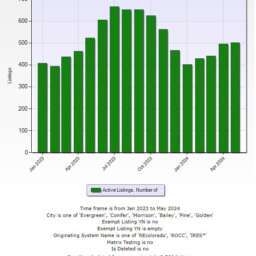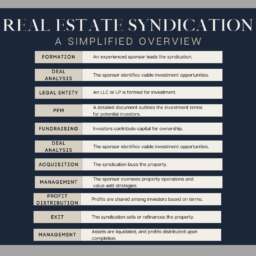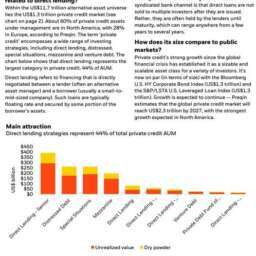DOJ Rejects Settlement and Screws Over Realtors and Their Commission
When the government gets involved with things they don’t understand we are the ones that get hurt.
In a landscape where the traditional structures of the real estate industry are being rigorously questioned, a pivotal development has emerged from the U.S. Department of Justice (DOJ). This development centers on the longstanding practice of fixed and shared commissions between real estate agents, a practice that has been a cornerstone of the industry’s operation. The DOJ’s rejection of a court settlement marks a turning point, emphasizing a clear message: the necessity of reforming how agent commissions are determined and distributed.
The DOJ’s Standpoint on Agent Commissions
The Department of Justice has cast a critical eye on the system of combined commissions, a system that has enabled real estate agents and brokers to charge what are perceived as high, uniform rates. This system, facilitated through multiple listing services (MLS), has historically required sellers to compensate buyer agents without allowing buyers any leverage to negotiate this compensation.
Key Points from the DOJ’s Opinion:
- Rejection of the Proposed Settlement: The DOJ deemed the proposed settlement inadequate, indicating that it fails to address the core issues of fairness and competition in the real estate commission structure.
- Advocacy for Commission Negotiation: The Department supports a shift towards enabling buyers to negotiate broker commissions, which are currently fixed through industry practices.
- Emphasis on Price Competition: The DOJ’s stance underlines a critical need for increased price competition in agent and broker compensation, advocating for compensation models that reflect agent expertise and the effort invested in the sale.
Historical Context and Legal Precedents
The DOJ’s recent actions are not without precedent but rather the culmination of efforts spanning decades to instill competition in real estate agent compensation.
Milestones in the Fight for Commission Reform:
- Supreme Court Decision, 1950: A landmark ruling favoring the DOJ’s stance against standardized commission rates.
- FTC Report, 1983: Highlighted how tacit collusion and tied selling rates were used to set commission prices.
- Congressional Hearing, 2006: Featured criticisms from the DOJ, FTC, and CFA regarding the industry’s price-fixing techniques.
- Public Workshop, 2018: A forum for discussing the negative impacts of industry price-fixing activities, with contributions from various stakeholders.
- Legal Challenges, 2019-Present: Notable cases, including Moehrl v. NAR, spotlight the ongoing legal battles against fixed commission structures.
The Impact on the Industry
The ramifications of the DOJ’s opinion and the subsequent legal battles are profound, threatening to upend traditional business models within the real estate sector.
Potential Consequences and Industry Responses:
- Shift in Business Practices: NAR’s acknowledgment of impending changes underscores the industry’s recognition of the need to adapt.
- Legal and Financial Challenges: The threat of substantial legal costs from class action lawsuits could incentivize the industry towards consolidation and reform in commission practices.
- Consumer Empowerment: With the prospect of commission negotiation, buyers may gain newfound leverage, potentially leading to more personalized compensation arrangements.
Future Directions and Considerations
As the industry stands at a crossroads, several key considerations emerge for both professionals and consumers.
Strategies for Adaptation and Compliance:
- Buyer Agent Compensation Negotiation: Encouraging buyers to negotiate agent compensation upfront can prevent conflicts of interest and ensure transparency.
- Prohibition of Dual Compensation: Adhering to ethical guidelines that prevent agents from being compensated by both buyers and sellers is crucial for maintaining trust and integrity.
- Continuous Dialogue and Reform: To truly dismantle price-fixing, ongoing discussions between buyers and sellers are essential to establish fair compensation models.
The DOJ Needs to Get Out of Our Business!
The Department of Justice’s rejection of the court settlement is more than a mere legal stance; it is a call to action for an industry in need of modernization. By advocating for negotiation and transparency in agent commissions, the DOJ aims to foster a competitive, fair, and consumer-friendly real estate market. As the industry navigates this transformative period, the focus must remain on ethical practices, consumer empowerment, and the pursuit of a more equitable and dynamic marketplace.
FAQ
Q: Can buyers currently negotiate real estate agent commissions? A: Historically, commissions have been fixed through industry practices, limiting negotiation opportunities for buyers. However, the DOJ’s recent actions aim to enable more flexibility and negotiation in commission rates.
Q: What was the historical stance of the DOJ on real estate commissions? A: The DOJ has consistently advocated for increased competition and transparency in real estate commissions, challenging standardized rates and practices that restrict price competition.
Q: How might changes in commission structures affect real estate agents? A: Agents may need to adapt to a more competitive environment where their compensation is directly tied to their expertise, effort, and the value they provide to their clients, rather than standardized commission rates.
It's Nice to Share
























































































Comment, Write a Blog Post, Create Groups, Get Seen!
Comments, Opinions and Facts Go Here...👇